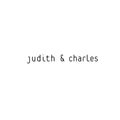Interviews
Consumers prefer clothing tested for harmful substances - Survey
28 Nov '08
6 min read
Throughout Europe, testing for harmful substances plays a significant role in the considerations made when buying textiles. This is demonstrated by the results of a trend analysis survey commissioned by the German Oeko-Tex Certification Centre and carried out by the consulting firm BBE Retail Experts in the Netherlands, Austria, Switzerland, Portugal, Italy, France and Spain. In each country, between 400 and 500 consumers and 200 specialist retailers were asked, among other things, about the interest in textiles tested for harmful substances and awareness of the Oeko-Tex Standard 100.
The data gathered in connection with the GfK (Society for Consumer Research) consumer study done in 2006 and a survey of specialist retailers carried out by the consulting firm BBE Retail Experts in 2008 (both in Germany) provides interesting insights into shared and in some cases drastically divergent conditions on the individual markets.
Results of the Retail Survey:
According to the opinions of the specialist retailers surveyed, product quality, social aspects, skin compatibility and testing for harmful substances were the most important considerations made by their customers when buying textiles and were regarded correspondingly by the retailers in their ordering behaviour. On a scale from 1 to 5, with "1 = unimportant" to "5 = very important", these factors constantly received ratings ranging between 4.2 and 4.6. When asked about the significance of testing for harmful substances, the rating of 4.2 from Germany was consistent with the average of the ratings of the seven other European countries surveyed.
In the run-up to the retail survey, a pre-test was conducted on nationally-specific textile seals in each country tested. Of the three labels present in all markets, aided awareness was greatest for the Oeko-Tex Standard 100. In Germany, the awareness level among retailers was 79%, while the average for the seven other European countries was 37%. Survey results showed that testing for harmful substances for clothing and other textiles plays a significant role in sales presentations. Some 75% of the specialist retail traders surveyed in the Netherlands, Austria, Switzerland, Portugal, Italy, France and Spain said that great value was placed on the issue by consumers.
Correspondingly, an overwhelming proportion (78%) of those surveyed expressed the wish for more labelling of certified products. In Portugal (95%) and Spain (80%) in particular, specialist retail traders in all product areas spoke out in favour of more labels indicating "Confidence in Textiles" in order to enable them to provide customers with competent information about tests for harmful substances carried out in accordance with the Oeko-Tex Standard 100. In the opinion of most of those surveyed (52%), the significance of these textile seals when it comes to ordering will continue to increase.
In this respect, Germany at 37%, demonstrated aproportion that was below average. In this case, that may be because in Germany, the emphasis placed on labelling is already very high seen in absolute terms, whereas in other European countries there is a great deal of leeway for developing this. In all eight European countries surveyed, 48% of the retailers said conversations with suppliers were the most important source of information on product characteristics, such as testing for harmful substances, etc.
The data gathered in connection with the GfK (Society for Consumer Research) consumer study done in 2006 and a survey of specialist retailers carried out by the consulting firm BBE Retail Experts in 2008 (both in Germany) provides interesting insights into shared and in some cases drastically divergent conditions on the individual markets.
Results of the Retail Survey:
According to the opinions of the specialist retailers surveyed, product quality, social aspects, skin compatibility and testing for harmful substances were the most important considerations made by their customers when buying textiles and were regarded correspondingly by the retailers in their ordering behaviour. On a scale from 1 to 5, with "1 = unimportant" to "5 = very important", these factors constantly received ratings ranging between 4.2 and 4.6. When asked about the significance of testing for harmful substances, the rating of 4.2 from Germany was consistent with the average of the ratings of the seven other European countries surveyed.
In the run-up to the retail survey, a pre-test was conducted on nationally-specific textile seals in each country tested. Of the three labels present in all markets, aided awareness was greatest for the Oeko-Tex Standard 100. In Germany, the awareness level among retailers was 79%, while the average for the seven other European countries was 37%. Survey results showed that testing for harmful substances for clothing and other textiles plays a significant role in sales presentations. Some 75% of the specialist retail traders surveyed in the Netherlands, Austria, Switzerland, Portugal, Italy, France and Spain said that great value was placed on the issue by consumers.
Correspondingly, an overwhelming proportion (78%) of those surveyed expressed the wish for more labelling of certified products. In Portugal (95%) and Spain (80%) in particular, specialist retail traders in all product areas spoke out in favour of more labels indicating "Confidence in Textiles" in order to enable them to provide customers with competent information about tests for harmful substances carried out in accordance with the Oeko-Tex Standard 100. In the opinion of most of those surveyed (52%), the significance of these textile seals when it comes to ordering will continue to increase.
In this respect, Germany at 37%, demonstrated aproportion that was below average. In this case, that may be because in Germany, the emphasis placed on labelling is already very high seen in absolute terms, whereas in other European countries there is a great deal of leeway for developing this. In all eight European countries surveyed, 48% of the retailers said conversations with suppliers were the most important source of information on product characteristics, such as testing for harmful substances, etc.
Popular News
Leave your Comments
Editor’s Pick
































-Ltd..jpg?tr=w-120,h-60,c-at_max,cm-pad_resize,bg-ffffff)





.jpg?tr=w-120,h-60,c-at_max,cm-pad_resize,bg-ffffff)
.jpg?tr=w-120,h-60,c-at_max,cm-pad_resize,bg-ffffff)






